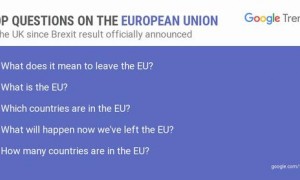Italian centre-left leader Matteo Renzi forced party rival Enrico Letta to
resign as prime minister on Thursday after criticising his government's failure to pass major reforms, opening the way for Italy's third administration in a year.
Letta's decision to quit came after the Democratic Party (PD), the largest party in the ruling coalition, supported a call by its 39-year-old leader Renzi for a more ambitious government to pull Italy out of its economic slump.
"Italy cannot live in a situation of uncertainty and instability. We are at a crossroads," Renzi told a meeting of the PD's 140-strong leadership committee.
Letta plans to tender his resignation to President Giorgio Napolitano on Friday. Napolitano is then expected to call on Renzi to form a new administration.
Before that happens, however, there is likely to be considerable horsetrading.
Letta's coalition partner, the New Centre Right party, said it would demand concessions on policy and it did not expect the government necessarily to last a full term until 2018.
"We're not taking anything for granted, and we're not even sure this attempt will end smoothly," party leader Angelino Alfano said at a news conference.
Growing criticism over the slow pace of economic reform had left Letta, a low-key moderate appointed in April to lead the cross-party coalition patched together after last year's deadlocked elections, increasingly isolated.
Appreciated by Italy's international partners for keeping a lid on public finances, Letta fell victim to Renzi's ruthless determination to set a faster tempo for the government.
Renzi has promised to loosen strict hiring and firing rules to make companies more nimble and shows less regard than Letta for European union budget rules, saying structural reforms should outweigh rigid deficit limits.
"People have accused me and the PD of having an outsize ambition. I don't deny this. We all need to have this, from me to the last party member," Renzi said in his speech to the party's leadership committee. "I am asking you to help us get Italy out of the mire," he said.
The latest bout of turmoil in Italy, the euro zone's third-largest economy, has so far had little impact on financial markets. Last year's political stalemate after elections, in contrast, led to much market volatility.
However, the continual uncertainty has held back any concerted effort to revive the economy or overhaul a political system blamed for hampering any deep reform programme.
In his speech, Renzi acknowledged that forcing Letta out to form a new government carried risks for both the government and himself personally. But he said there was no alternative.
"Putting oneself on the line right now carries an element of risk, but a politician has the duty to take risks at certain moments," he said. Renzi added that he saw the new government lasting until 2018.







